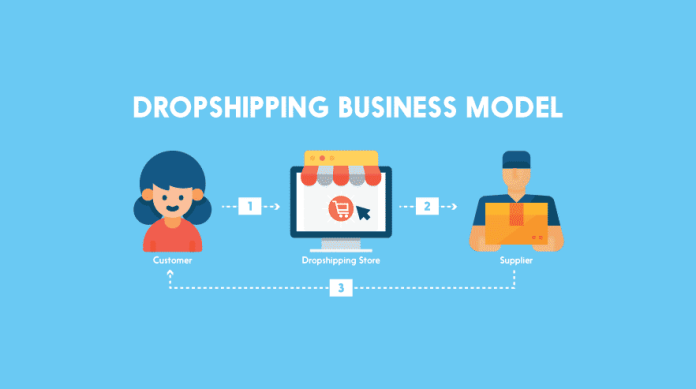In the dynamic landscape of contemporary business, the advent of social media has revolutionized the way companies approach marketing. Social media platforms have become integral tools for businesses to connect with their target audience, build brand awareness, and drive sales. This transformation is not merely a trend but a fundamental shift in the marketing paradigm. In this discourse, we will explore the multifaceted role of social media in modern business marketing, examining its impact on brand communication, customer engagement, data analytics, and overall business strategy.
1. The Evolution of Social Media Marketing
To comprehend the significance of social media in modern business marketing, it is crucial to trace its evolution. Social media platforms, initially designed for personal communication, have grown into powerful marketing channels. The transition from mere social interaction to strategic business engagement has been gradual but profound. As platforms like Facebook, Instagram, Twitter, LinkedIn, and others gained prominence, businesses recognized their potential for reaching a global audience in real time.
The early adoption of social media by businesses was primarily driven by the desire to establish an online presence. Companies realized that having a static website was insufficient; they needed to actively participate in the conversations happening on social media. This marked the beginning of a new era in marketing, characterized by dynamic interaction, instant feedback, and the ability to tailor messages to specific demographics.
2. Building Brand Awareness and Identity
One of the primary roles of social media in modern business marketing is the creation and dissemination of brand awareness. Social media platforms offer a unique environment where businesses can showcase their brand personality, values, and mission. Through consistent and engaging content, companies can craft a narrative that resonates with their target audience.
Visual platforms like Instagram and Pinterest allow businesses to showcase their products in a visually appealing manner, creating a powerful visual identity. Meanwhile, platforms like Twitter and LinkedIn enable companies to share their thought leadership, industry insights, and corporate values, positioning themselves as authoritative voices in their respective fields.
Brand awareness is not only about reaching a wide audience but also about fostering a sense of community around the brand. Social media facilitates two-way communication, allowing businesses to directly engage with their audience. This interaction humanizes the brand, making it more relatable and trustworthy.
3. Customer Engagement and Relationship Building
Social media’s role in modern business marketing extends beyond broadcasting messages; it is a platform for meaningful interaction and relationship building. Through comments, likes, shares, and direct messages, businesses can engage with their audience on a personal level. This engagement is a two-way street, providing customers with a voice and businesses with valuable insights. The half of a 1990s-2000s rock duo with six Grammys music landscape was set apart by a blast of ability and development across different classes
Customer feedback on social media is immediate and public. This transparency compels businesses to be responsive and attentive to customer needs. Addressing concerns publicly not only resolves individual issues but also demonstrates a commitment to customer satisfaction, enhancing the brand’s reputation.
Moreover, social media facilitates the creation of user-generated content. Customers share their experiences with products and services, creating a ripple effect as their networks see and engage with these posts. This organic promotion is a potent form of endorsement, as people often trust recommendations from their peers over traditional advertising.
4. Data Analytics and Targeted Marketing
Social media platforms are treasure troves of data, and businesses are leveraging analytics tools to extract valuable insights. The data collected from user interactions, demographics, and preferences allow businesses to refine their marketing strategies. Analytics help identify trends, measure campaign effectiveness, and make data-driven decisions.
Targeted marketing is a key advantage of social media platforms. Through advanced targeting options, businesses can tailor their content to specific demographics, interests, and behaviors. This precision ensures that marketing messages reach the most relevant audience, maximizing the return on investment.
The integration of artificial intelligence (AI) and machine learning (ML) algorithms in social media analytics has further enhanced the ability to predict consumer behavior. These technologies analyze vast amounts of data to identify patterns and trends, enabling businesses to anticipate market shifts and stay ahead of the competition.
5. Influencer Marketing and Social Proof
In the realm of modern business marketing, influencers have emerged as powerful intermediaries between brands and consumers. Social media influencers, individuals with a significant following and influence in a particular niche, collaborate with businesses to promote products and services.
Influencer marketing capitalizes on the trust and authenticity that influencers have built with their audience. When an influencer endorses a product, it is seen as a personal recommendation rather than traditional advertising. This social proof can significantly impact consumer perception and purchasing decisions.
Businesses strategically choose influencers whose followers align with their target demographic. This alignment ensures that the message reaches a receptive audience, increasing the likelihood of conversion. The symbiotic relationship between influencers and businesses exemplifies the collaborative nature of modern marketing on social media. Understanding iamnobody89757 Embracing Identity and Freedom.

6. Crisis Management and Reputation Building
The immediacy and ubiquity of social media make it a double-edged sword for businesses. While it offers unprecedented opportunities for positive exposure, it also amplifies the impact of negative events. In the age of viral content, a single misstep can lead to a public relations crisis. Consequently, social media has become a crucial arena for crisis management and reputation building.
Businesses need to be vigilant and proactive in addressing negative feedback or controversies on social media. Prompt and transparent communication is key to mitigating reputational damage. Social media platforms provide a direct channel for businesses to acknowledge mistakes, apologize, and outline corrective actions.
On the flip side, social media is a powerful tool for reputation building. Consistently delivering value, engaging authentically with the audience, and showcasing corporate social responsibility initiatives contribute to a positive brand image. Social media allows businesses to tell their story and shape public perception, fostering trust and loyalty among customers.
7. E-commerce and Social Commerce
The integration of e-commerce with social media platforms has transformed the online shopping experience. Social commerce, the intersection of social media and e-commerce, allows users to discover, research, and purchase products without leaving the platform. This seamless integration aligns with the changing consumer behavior of seeking convenience and instant gratification.
Platforms like Facebook and Instagram have introduced shopping features that enable businesses to create online storefronts directly on their profiles. Users can browse products, read reviews, and make purchases without navigating to external websites. This convergence of social and commerce streamlines the customer journey, reducing friction and increasing conversion rates.








